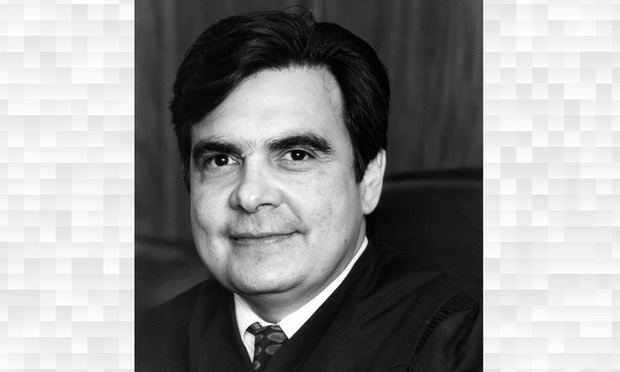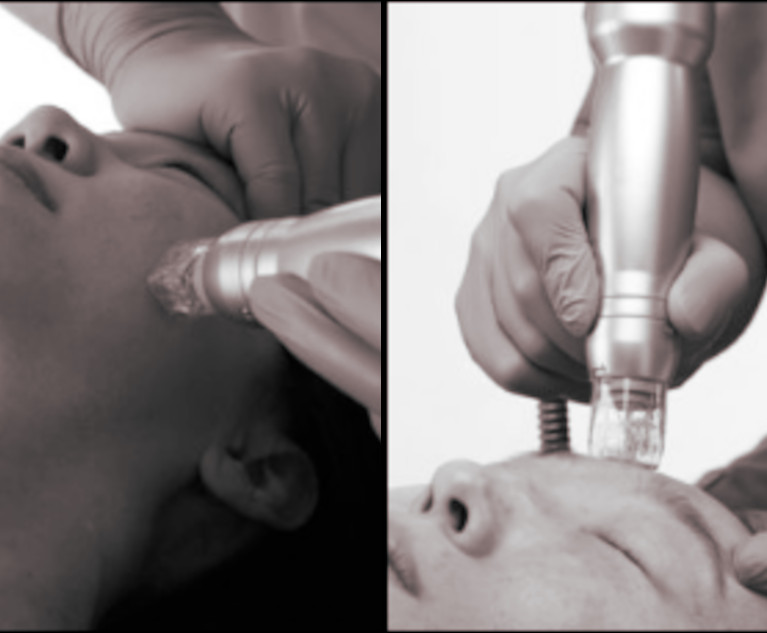Class Certification Denied in Case Alleging Plot to Suppress Nurses' Wages
A Texas judge on Tuesday denied class certification in an antitrust lawsuit alleging that the three largest hospital operators in San Antonio had conspired…
January 23, 2019 at 04:01 PM
3 minute read
 U.S. District Judge Orlando Garcia, Western District of Texas. Courtesy photo
U.S. District Judge Orlando Garcia, Western District of Texas. Courtesy photo
A Texas judge on Tuesday denied class certification in an antitrust lawsuit alleging that the three largest hospital operators in San Antonio had conspired to keep nurses' wages artificially low.
The ruling from Chief U.S. District Judge Orlando L. Garcia of the Western District of Texas, was a clear win for defense attorneys from Norton Rose Fulbright, which had taken the lead in opposing class cert in the wage-fixing suit, which has been pending since 2006.
In the complaint, plaintiff Marissa Maderazo alleged that San Antonio-area hospitals had coordinated efforts to avoid pay increases for registered nurses between 2002 and 2007, during a national nurse shortage.
According to the filing, hospital operators Baptist Health Systems HCA Inc., Methodist Healthcare System of San Antonio and Christus Santa Rosa Health Care Corp. had exchanged detailed information regarding wages and agreed, over the course of five years, not to compete with each other in setting rates for compensation.
The lawsuit seeks to recovery lost wages, as well as treble damages, fees and costs.
Norton Rose, which represented Christus, moved to oppose class cert in 2016 and challenged the testimony of Henry S. Farber, a Princeton University economist, who Maderazo had retained as a damages expert in the case. In court documents, Norton Rose attacked Farber's analysis for failing to show a crucial link between the alleged antitrust violations and Maderazo's theory of liability for class-wide damages.
On Tuesday, Garcia agreed that no such link existed, noting that the plaintiffs had offered no alternative explanation for how they planned to prove an antitrust injury had occurred.
“There is simply no explanation as to how plaintiffs plan to link the alleged conspiracy to the alleged impact/injury, with either common or individual evidence. Without an evidentiary link, Professor Farber's analysis would do nothing more than show a difference between agency fees and staff wages,” Garcia wrote in a 24-page order.
“Thus, they have failed to demonstrate that antitrust injury/impact can be addressed through evidence common to the class,” the judge said.
An attorney for Maderazo said he was evaluating his options but declined to comment Wednesday on the ruling. Norton Rose partner Layne E. Kruse did not immediately return a call Wednesday afternoon seeking comment on the ruling.
Maderazo's attorneys had argued that they tried to obtain information related to causation in discovery, but the defendants had failed to produce it. In response, Garcia said that the issue was not brought to the court's attention during the discovery period.
“There is a difference between movants that are prohibited from obtaining class certification discovery and those that are permitted but fail to obtain and/or use it. The court cannot conclude that plaintiffs were prohibited from seeking the information they needed for class certification,” he wrote.
Methodist HCA was represented by attorneys from Simpson Thacher & Bartlett in New York and Washington, D.C. Baptist was represented by Gibson Dunn & Crutcher attorneys in New York and Washington, D.C.
Norton Rose partners Darryl Wade Anderson, Seth Isgur and Mario A. Barrera also represented Christus in the case, captioned Maderazo v. VHS San Antonio Partners.
This content has been archived. It is available through our partners, LexisNexis® and Bloomberg Law.
To view this content, please continue to their sites.
Not a Lexis Subscriber?
Subscribe Now
Not a Bloomberg Law Subscriber?
Subscribe Now
NOT FOR REPRINT
© 2025 ALM Global, LLC, All Rights Reserved. Request academic re-use from www.copyright.com. All other uses, submit a request to [email protected]. For more information visit Asset & Logo Licensing.
You Might Like
View All

Paxton's 2024 Agenda: Immigration, Climate, Transgender Issues, Social Media, Abortion, Elections
9 minute read

Latham & Watkins Successfully Defend Patents at the ITC for Cosmetic Devices
3 minute readTrending Stories
- 1Many LA County Law Firms Remain Open, Mobilize to Support Affected Employees Amid Historic Firestorm
- 2Stevens & Lee Names New Delaware Shareholder
- 3U.S. Supreme Court Denies Trump Effort to Halt Sentencing
- 4From CLO to President: Kevin Boon Takes the Helm at Mysten Labs
- 5How Law Schools Fared on California's July 2024 Bar Exam
Who Got The Work
Michael G. Bongiorno, Andrew Scott Dulberg and Elizabeth E. Driscoll from Wilmer Cutler Pickering Hale and Dorr have stepped in to represent Symbotic Inc., an A.I.-enabled technology platform that focuses on increasing supply chain efficiency, and other defendants in a pending shareholder derivative lawsuit. The case, filed Oct. 2 in Massachusetts District Court by the Brown Law Firm on behalf of Stephen Austen, accuses certain officers and directors of misleading investors in regard to Symbotic's potential for margin growth by failing to disclose that the company was not equipped to timely deploy its systems or manage expenses through project delays. The case, assigned to U.S. District Judge Nathaniel M. Gorton, is 1:24-cv-12522, Austen v. Cohen et al.
Who Got The Work
Edmund Polubinski and Marie Killmond of Davis Polk & Wardwell have entered appearances for data platform software development company MongoDB and other defendants in a pending shareholder derivative lawsuit. The action, filed Oct. 7 in New York Southern District Court by the Brown Law Firm, accuses the company's directors and/or officers of falsely expressing confidence in the company’s restructuring of its sales incentive plan and downplaying the severity of decreases in its upfront commitments. The case is 1:24-cv-07594, Roy v. Ittycheria et al.
Who Got The Work
Amy O. Bruchs and Kurt F. Ellison of Michael Best & Friedrich have entered appearances for Epic Systems Corp. in a pending employment discrimination lawsuit. The suit was filed Sept. 7 in Wisconsin Western District Court by Levine Eisberner LLC and Siri & Glimstad on behalf of a project manager who claims that he was wrongfully terminated after applying for a religious exemption to the defendant's COVID-19 vaccine mandate. The case, assigned to U.S. Magistrate Judge Anita Marie Boor, is 3:24-cv-00630, Secker, Nathan v. Epic Systems Corporation.
Who Got The Work
David X. Sullivan, Thomas J. Finn and Gregory A. Hall from McCarter & English have entered appearances for Sunrun Installation Services in a pending civil rights lawsuit. The complaint was filed Sept. 4 in Connecticut District Court by attorney Robert M. Berke on behalf of former employee George Edward Steins, who was arrested and charged with employing an unregistered home improvement salesperson. The complaint alleges that had Sunrun informed the Connecticut Department of Consumer Protection that the plaintiff's employment had ended in 2017 and that he no longer held Sunrun's home improvement contractor license, he would not have been hit with charges, which were dismissed in May 2024. The case, assigned to U.S. District Judge Jeffrey A. Meyer, is 3:24-cv-01423, Steins v. Sunrun, Inc. et al.
Who Got The Work
Greenberg Traurig shareholder Joshua L. Raskin has entered an appearance for boohoo.com UK Ltd. in a pending patent infringement lawsuit. The suit, filed Sept. 3 in Texas Eastern District Court by Rozier Hardt McDonough on behalf of Alto Dynamics, asserts five patents related to an online shopping platform. The case, assigned to U.S. District Judge Rodney Gilstrap, is 2:24-cv-00719, Alto Dynamics, LLC v. boohoo.com UK Limited.
Featured Firms
Law Offices of Gary Martin Hays & Associates, P.C.
(470) 294-1674
Law Offices of Mark E. Salomone
(857) 444-6468
Smith & Hassler
(713) 739-1250






